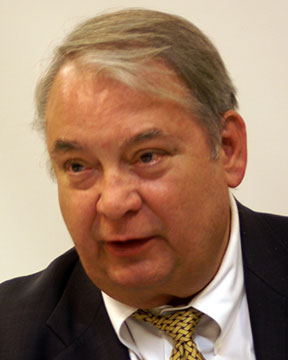ORALS
SESSION:
BatteryFriPM2-R11
| 6th Intl. Symp. on Sustainable Secondary Battery Manufacturing and Recycling |
| Fri Oct, 25 2019 / Room: Coralino | |
| Session Chairs: Katsuya Teshima; Deise Menezes Santos; Session Monitor: TBA |
15:55: [BatteryFriPM209]
Production of Ultra-Pure Lead Citrate from Spent Lead-Acid Battery Paste using a Cost-Effective, Eco-Friendly Process Vimalnath
Selvaraj1 ; Marcel
Yiao
1 ; Robert
Liu
2 ;
Rumen
Tomov1 ;
Vasant
Kumar1 ; Peter
Knight
1 ; Steve
Andrew
2 ; Spencer
Lowe
2 ;
Athan
Fox3 ;
Miles
Freeman2 ; Johdie
Harris
2 ;
1University of Cambridge, Cambridge, United Kingdom;
2Aurelius Environmental, Dudley, United Kingdom;
3Aurelius Environmental, Tipton, United Kingdom;
Paper Id: 415
[Abstract] Abstract
The recovery of Pb from the spent lead-acid battery paste is achieved conventionally through pyrometallurgical processes. This process requires relatively high temperature (~1,100 °C) for the decomposition of PbSO4 which is a dominant compound in the paste along with PbO2, PbO, metallic Pb and other impurities. The high-temperature pyrometallurgical process releases SO2 gas and Pb particulates into the environment, raising serious environmental concerns. The hydro-electro metallurgical process, which has been developed as an alternative, also consumes high energy and uses toxic acids like HBF4 or H2SiF6. The need for an eco-friendly and cost-effective recycling process for the recovery of spent battery paste [1,2,3,4], is not only critical but also very timely. Indeed, the market size of secondary lead-acid batteries is forecasted to reach over $95 billion USD by 2026 [5]. Within this market, the recycling of lead-acid batteries is a revenue stream worth around $14-16 billion USD by 2025 [6].
In this paper, we present our work towards a fully hydrometallurgical, eco-friendly and cost-effective process. The recovery of Pb is achieved through the synthesis of ultrapure lead-citrate, which is obtained directly from spent lead-acid battery paste via desulphurisation and treatment with organic acids. Unlike previous iterations of this process, we have optimised the conditions to achieve production of ultra-pure lead-citrate, 99.99%, with minimum consumption of reagents. This paper shows how it is possible to minimise production costs for the recycled lead compounds to the extent that the process is as cost-effective, if not superior economically, when compared to the incumbent technology. The scalability and economic improvement of the latest iteration of this now-patented hydrometallurgical process greatly facilitate the globalisation of this innovative technology.
Keywords
Lead, battery, recycling, lead citrate, hydrometallurgy, organic acids
References:
References
[1] Sonmez, M. S., and R. V. Kumar, Hydrometallurgy 95.1-2 (2009) 53-60.
[2] Sonmez, M. S., and R. V. Kumar, Hydrometallurgy 95.1-2 (2009) 82-86.
[3] Yang, Jiakuan, Ramachandran Vasant Kumar, and Deepak P. Singh, Journal of Chemical Technology & Biotechnology 87.10 (2012) 1480-1488.
[4] Zhu, X., He, X., Yang, J., Gao, L., Liu, J., Yang, D., Sun, X., Zhang, W., Wang, Q. and Kumar, R.V, Journal of Hazardous Materials 250 (2013) 387-396.
[5] https://www.reportsanddata.com (report ID RND_00104)
[6] https://www.cambridgeindependent.co.uk/business/cambridge-battery-recycling-technology-set-to-disrupt-global-market-9052189/



















